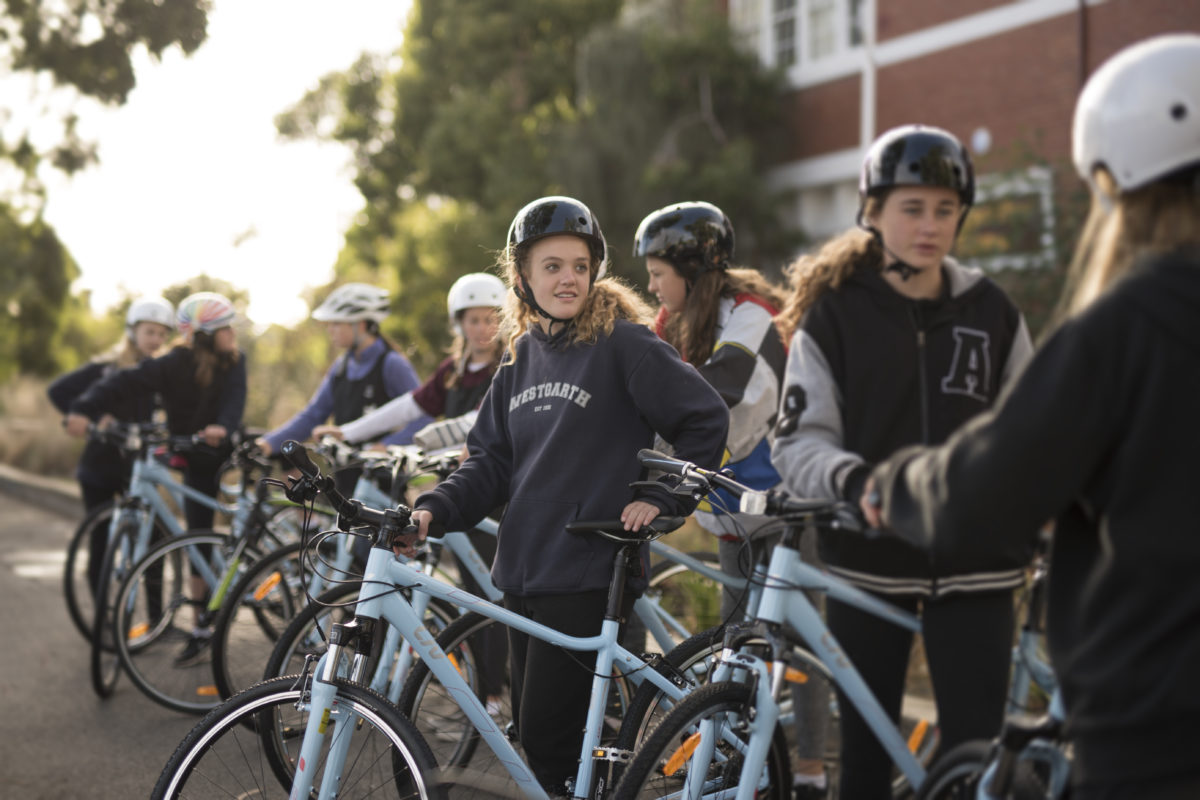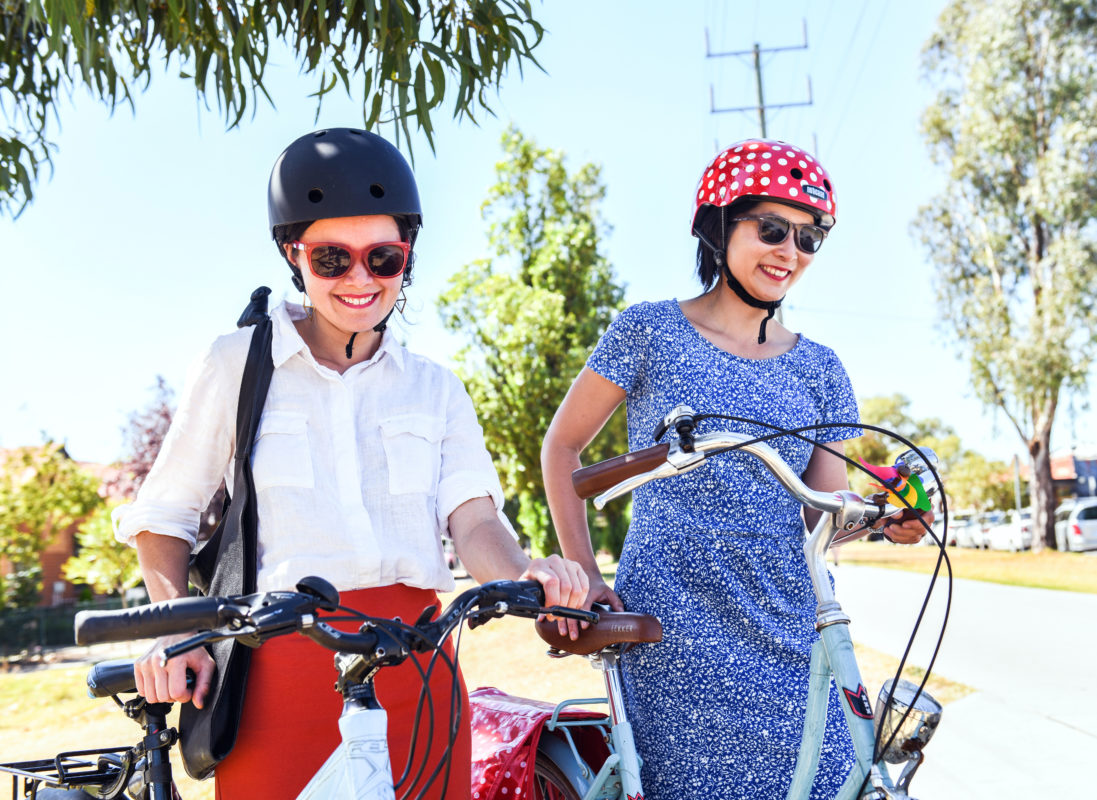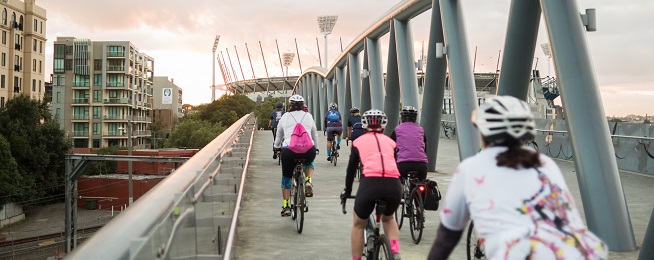Back in the 1890s American social reformer, Susan B Anthony said that one machine ‘has done more to emancipate women than any one thing in the world’. That machine was the bicycle.
In the dark old days, women were only supposed to venture outdoors with chaperones to ‘acceptable public spaces’.
Then the design of the bicycle evolved from an imbalanced penny farthing to one with two wheels of similar size. Suddenly, women broke free and were ‘racing around all over the place astride a steel steed with their ankles showing’.
Fast forward to today, to Women’s Health Week, and we’re faced with another imbalanced problem: more women than men don’t get the recommended 30 minutes of physical activity we all need each day to maintain our health.
Insufficient physical activity is one of our silent killers. If you don’t move enough, you have a fifty-fifty chance of being diagnosed with heart disease, type-2 diabetes or some cancers. They’re shocking odds that over 12 million Australians are dicing with.

Of course, when we think of how to get people moving, our minds automatically turn to sport. After all, our national pastime is collecting urns, medals and trophies.
The sad reality is we’re actually much better at watching sport than playing it. Less than one in 10 Australians participate in organised sport. That number is again lower for women than men.
Our governments have recognised the sport gender imbalance and are trying to even the scales. The Federal Government is running the Girls Make your Move program. The Victorian Government is running This Girl Can and Change our Game.
Thankfully, at the elite level, there also seems to be an increasing focus on women’s sport.
But we’re coming from a long way back in the field. A stroll around our beloved 'G puts it in context. There are 14 statues celebrating the feats of male modern-day gladiators and only two of women. Two. Even worse, the deeds of the two women, Shirley Strickland and Betty Cuthbert, were over 50 years ago.
My next statement runs the risk of sounding un-Australian: I don’t think sport alone is going to solve our health gender imbalance. We’re just not going to go from less than a million women playing sport to over 12 million.
I don’t think sport alone is going to solve our health gender imbalance. We’re just not going to go from less than a million women playing sport to over 12 million.
One solution is to look back to the 1890s when women rode bikes to simply get where they wanted to go, while enjoying the freedom that came with it. There were no thoughts about being a trailblazer for gold medal heroes like Anna Mears, Sara Carrigan or Kathy Watt.
The number one reason people choose to ride a bike to get around is convenience. It’s a quick and easy door-to-door solution without the need to circle endlessly hoping to snag a car spot. With peak hour travel speeds at a crawl, it’s no wonder some people in cars look enviously at the two-wheel pedallers zipping past.
But when it comes to bike riding, overall, there’s a familiar tale: more men ride than women. But data shows that the number returns to its rightful balance when we provide better places to ride separated from motor vehicles or where traffic speeds are slower.

The most recent Super Tuesday count of bike commuters in Melbourne found that the number of women riding was higher where there are proper bike lanes or paths. Almost 50 per cent of riders counted at places like the Royal Parade shared path, La Trobe Street and Capital City Trail were female.
The humble bicycle has been described as ‘a simple solution to some of the world’s most complicated problems’.
Over 100 years ago, it was instrumental in setting women on a path to freedom. Today, if we provide better places to ride a bicycle, we have an opportunity to set women on a path to healthier, happier lives.
Craig Richards
September 2019
Craig Richards is the CEO of Bicycle Network and a Change our Game Champion.
We had a great morning kicking off #WomensHealthWeek with a ride around the MCG this morning!
— Bicycle Network (@bicycle_network) September 2, 2019
Thanks to @JeanHailes, @SallyCapp_ and @sportandrecvic for celebrating. pic.twitter.com/PIlt2K37Ls
Women's Health Week runs from Monday 2 to Friday 6 September 2019.
Click here to see Bicycle Network's Women's Health Week events.
Become our friend
Find out more about Bicycle Network and support us in making it easier for people to ride bikes.


